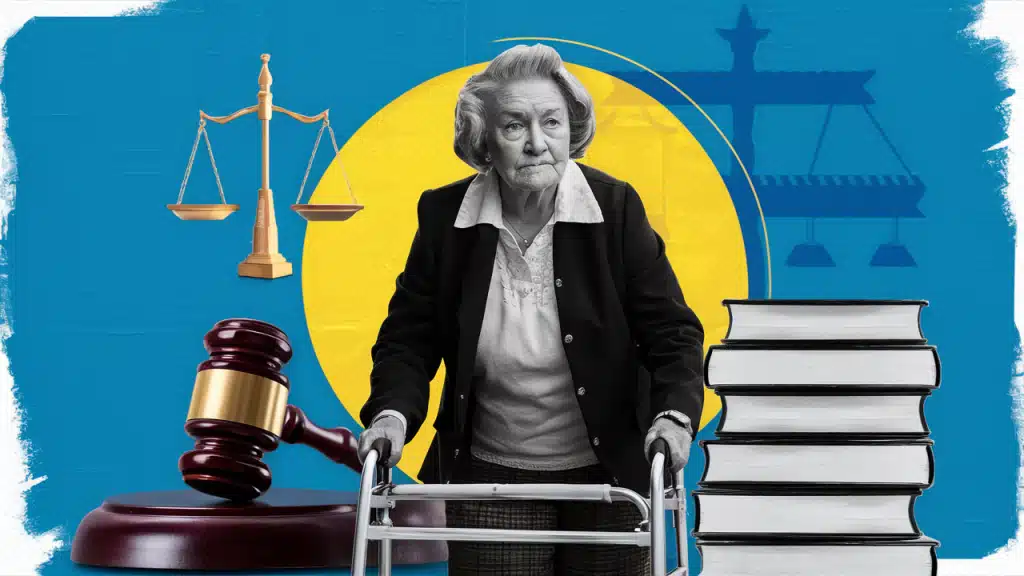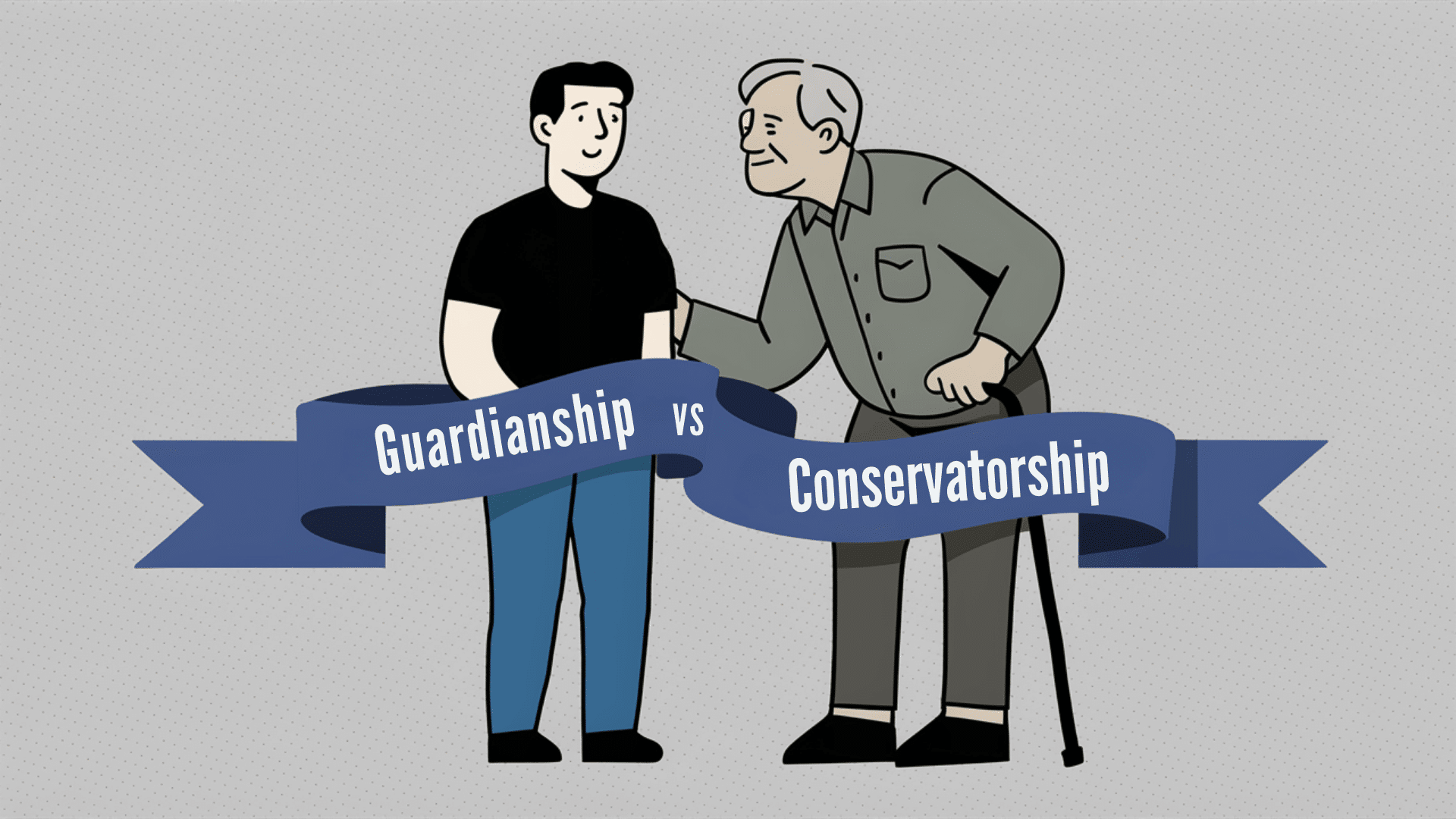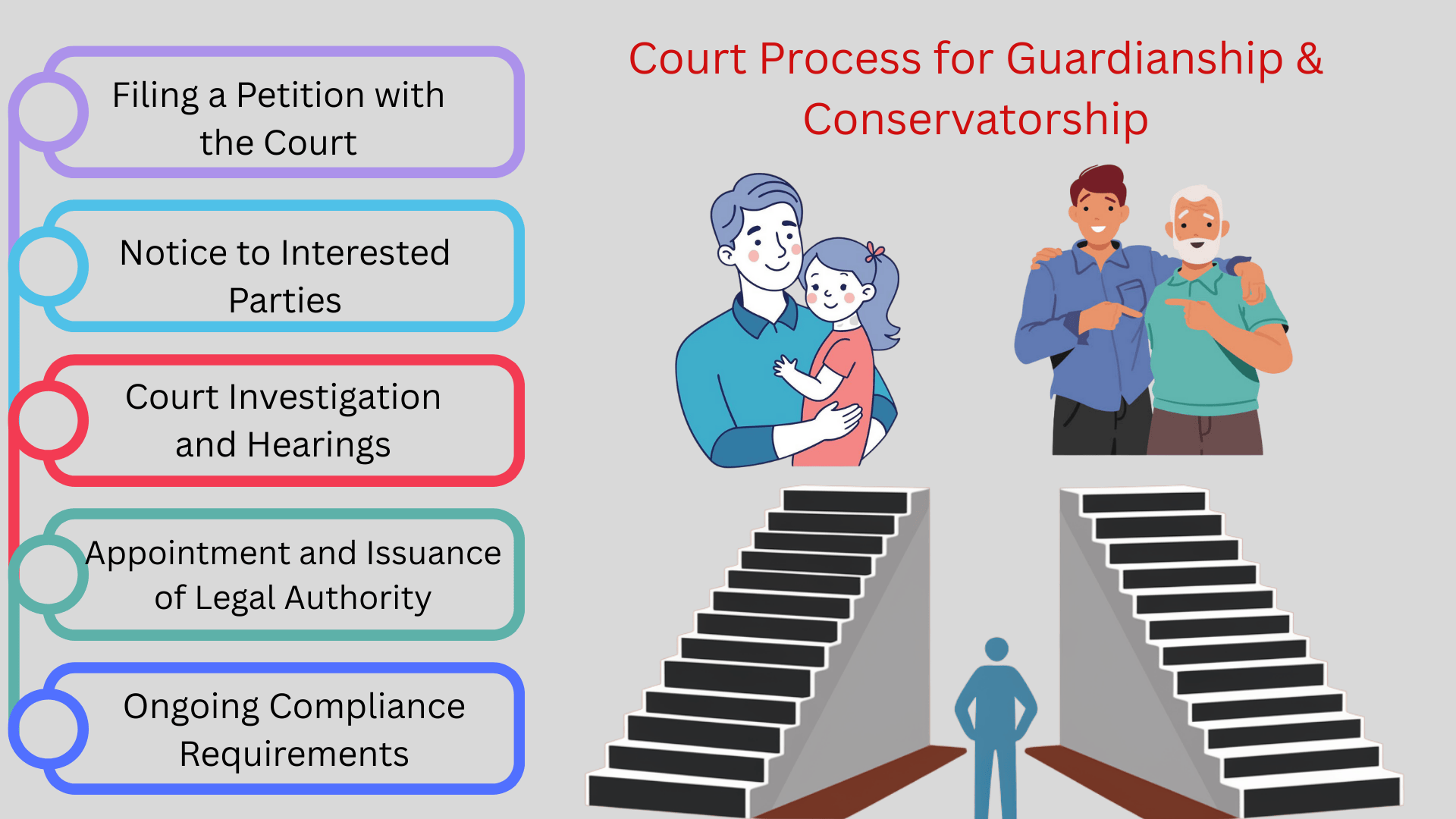Many families face tough decisions when a loved one can no longer care for themselves. Two legal options can help: conservatorship and guardianship. But which one do you need?
This guide explains the key differences between conservatorship and guardianship. You’ll learn when each applies, what they cost, and how to get started.
By the end, you’ll know which option fits your situation best.
What is a Conservatorship?
A conservatorship is a legal arrangement where a court appoints someone to handle another person’s affairs. This happens when someone cannot make decisions for themselves due to illness, age, or disability.
Types of Conservatorship
| Type | What It Covers | Who Makes Decisions |
|---|---|---|
| Conservatorship of the Estate | Financial matters, assets, income, bills, investments | The conservator handles all money decisions |
| Conservatorship of the Person | Daily life, healthcare, living arrangements, personal care | Conservator makes personal life choices |
| General Conservatorship | Both financial and personal matters combined | One person handles everything |
When Conservatorship is Needed
A conservatorship is needed when an adult can no longer manage their financial affairs, personal care, or both due to illness, disability, or incapacity, and a court appoints someone to act in their best interests.
- Elderly with dementia – When memory loss prevents financial decision-making
- Adults with disabilities – Physical or mental conditions that limit capacity
- Stroke victims – Medical events that affect thinking and judgment
- Mental illness – Conditions that impair decision-making abilities
- Brain injuries – Accidents that reduce cognitive function
- Addiction issues – Substance abuse affecting judgment and safety
What is a Guardianship?
A guardianship gives one person legal responsibility to care for and make decisions for another person. This usually applies to minors, but can also cover adults who cannot care for themselves.
Types of Guardianship
| Type | Who It Protects | Guardian’s Role |
|---|---|---|
| Guardianship of a Minor | Children under 18 | Makes all major life decisions for the child |
| Guardianship of an Incapacitated Adult | Adults unable to care for themselves | Handles personal care and daily life choices |
| Temporary Guardianship | Anyone needing short-term care | Provides care for a specific time period |
Common Reasons for Guardianship
Why guardianship becomes necessary:
- Parents deceased – When both parents die, and the children need care
- Parental neglect – When parents cannot or will not provide proper care
- Medical incapacity – Adults with severe disabilities needing full-time help
- Mental health issues – Conditions preventing self-care abilities
- Substance abuse – Parents with addiction problems affecting child safety
- Military deployment – Service members needing temporary child care arrangements
Guardianship vs Conservatorship: A Complete Legal Comparison
1. Purpose
Conservatorship – Focuses mainly on managing finances and property. The conservator pays bills, handles investments, manages assets, and makes financial decisions for someone who cannot do this themselves.
Guardianship – Centers on personal care and daily life decisions. The guardian chooses where someone lives, what medical care they receive, and handles education or lifestyle choices.
2. Who It Applies To
Conservatorship – Usually applies to adults who have lost their ability to manage money. This includes elderly people with dementia, adults with disabilities, or anyone who cannot handle financial matters safely.
Guardianship – Most commonly applies to children under 18 who need care. It can also apply to adults with severe disabilities who cannot make any personal decisions for themselves.
3. Scope of Authority
Conservatorship – Authority is limited to financial and property matters. The conservator cannot make medical decisions unless the court specifically grants this power. They must get court approval for major financial moves.
Guardianship – Authority covers all personal decisions, including healthcare, education, and living arrangements. Guardians have broad power over the person’s daily life and major life choices.
4. Duration
Conservatorship – Can be temporary for short-term needs or permanent for ongoing incapacity. The court reviews the arrangement regularly and can end it if the person regains their abilities.
Guardianship – For minors, it lasts until age 18 or until parents can care for them again. For adults, it continues until the court decides the person can care for themselves.
5. Court Oversight & Reporting Requirements
Conservatorship – Requires detailed financial reports to the court annually. The conservator must account for every dollar spent and get permission for major expenses or property sales.
Guardianship – Needs regular reports on the person’s well-being and living situation. The guardian must update the court on medical care, education progress, and any major life changes.
6. State Law Variations
Conservatorship – Laws vary significantly between states regarding procedures, required reports, and conservator duties. Some states use different terms or have stricter oversight requirements than others.
Guardianship – Each state has different rules about who can be a guardian, how long the process takes, and what rights the person keeps. Some states favor family members while others allow professional guardians.
Roles and Legal Duties of a Guardian or Conservator
- Fiduciary Duty to Act in Best Interest – Both guardians and conservators must always put the ward’s needs first. They cannot use their position for personal gain and must make decisions that benefit the person they serve, not themselves.
- Required Reporting and Accounting to Court – Regular reports must be filed with the court showing how money was spent and what care was provided. These reports are reviewed by judges to ensure proper management and care.
- Limits of Authority (Court Approval Required) – Major decisions, such as selling property, relocating to a different state, or undergoing expensive medical treatments, require court approval first. Not all choices can be made without asking the judge.
- Penalties for Misuse or Neglect – Courts can remove guardians or conservators who abuse their power. Criminal charges, financial penalties, and personal liability can result from stealing money or failing to provide proper care
Guardianship & Conservatorship: Legal Steps
The legal process for both conservatorship and guardianship follows the same five main steps:
1. Filing a Petition with the Court
Submit legal papers to the court requesting appointment as guardian or conservator. The petition must explain why the person needs help and include medical records or other proof of incapacity.
2. Notice to Interested Parties
The court sends notices to family members, close friends, and the person who needs care. Everyone has a right to know about the legal action and can object if they disagree.
3. Court Investigation and Hearings
A court investigator visits the person and reviews their situation. The judge holds hearings where evidence is presented and witnesses can testify about the person’s needs and abilities.
4. Appointment and Issuance of Legal Authority
If approved, the court issues official papers granting guardianship or conservatorship powers. The appointed person receives legal documents showing their authority and specific duties.
5. Ongoing Compliance Requirements
Regular reports must be filed with the court showing how the person is being cared for or how their money is managed. The court continues to oversee the arrangement to ensure proper care.
The Takeaway
Understanding the difference between conservatorship and guardianship can help you make the right choice for your family.
Conservatorship handles money matters, while guardianship focuses on personal care decisions. Both require court approval and ongoing responsibility.
The process takes time, but it protects people who cannot protect themselves. Don’t wait until a crisis hits. Talk to a lawyer about your options now. Planning ahead makes the process easier when you need it most.
What questions do you have about conservatorship or guardianship? Share your thoughts in the comments below.








































